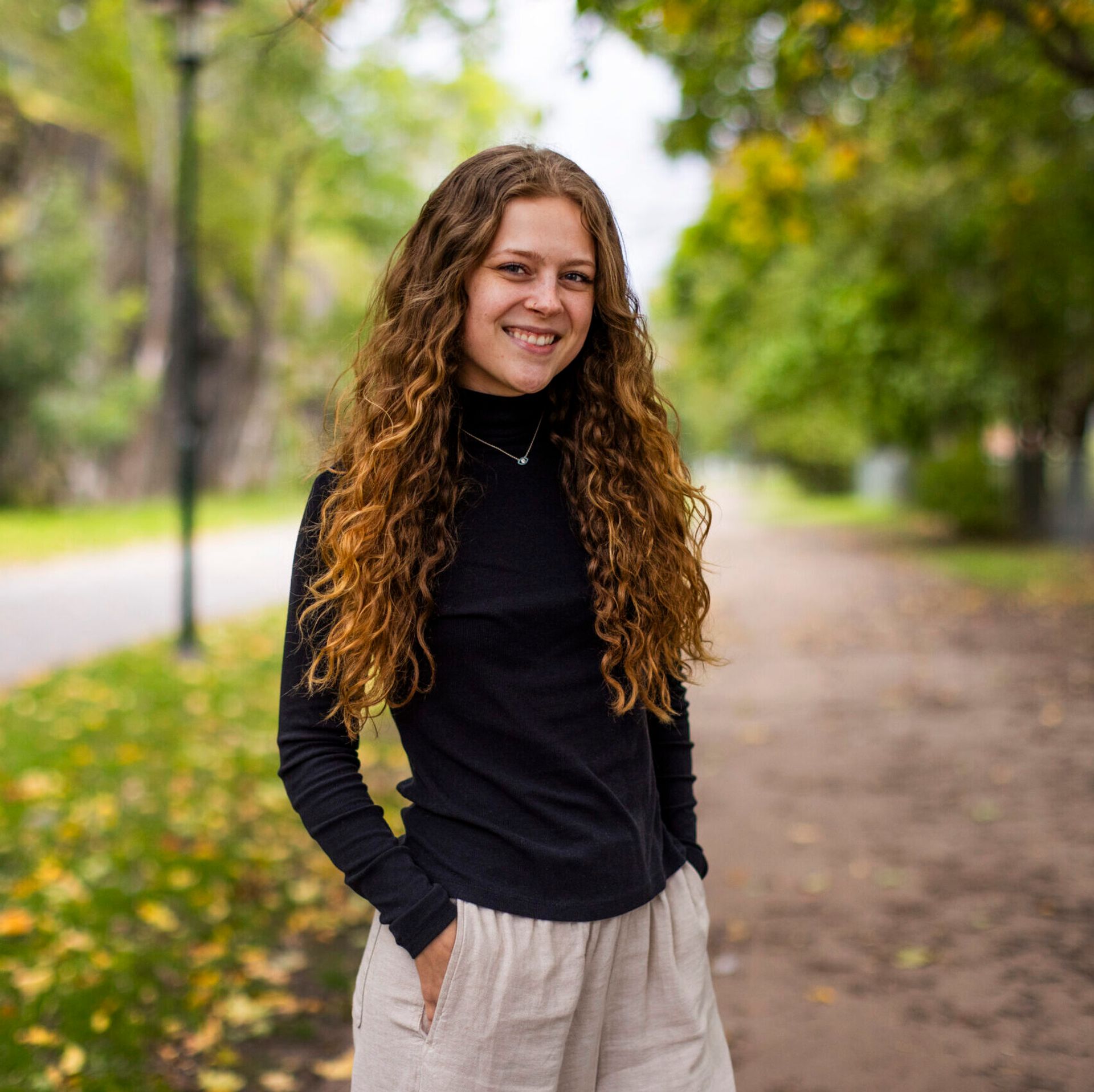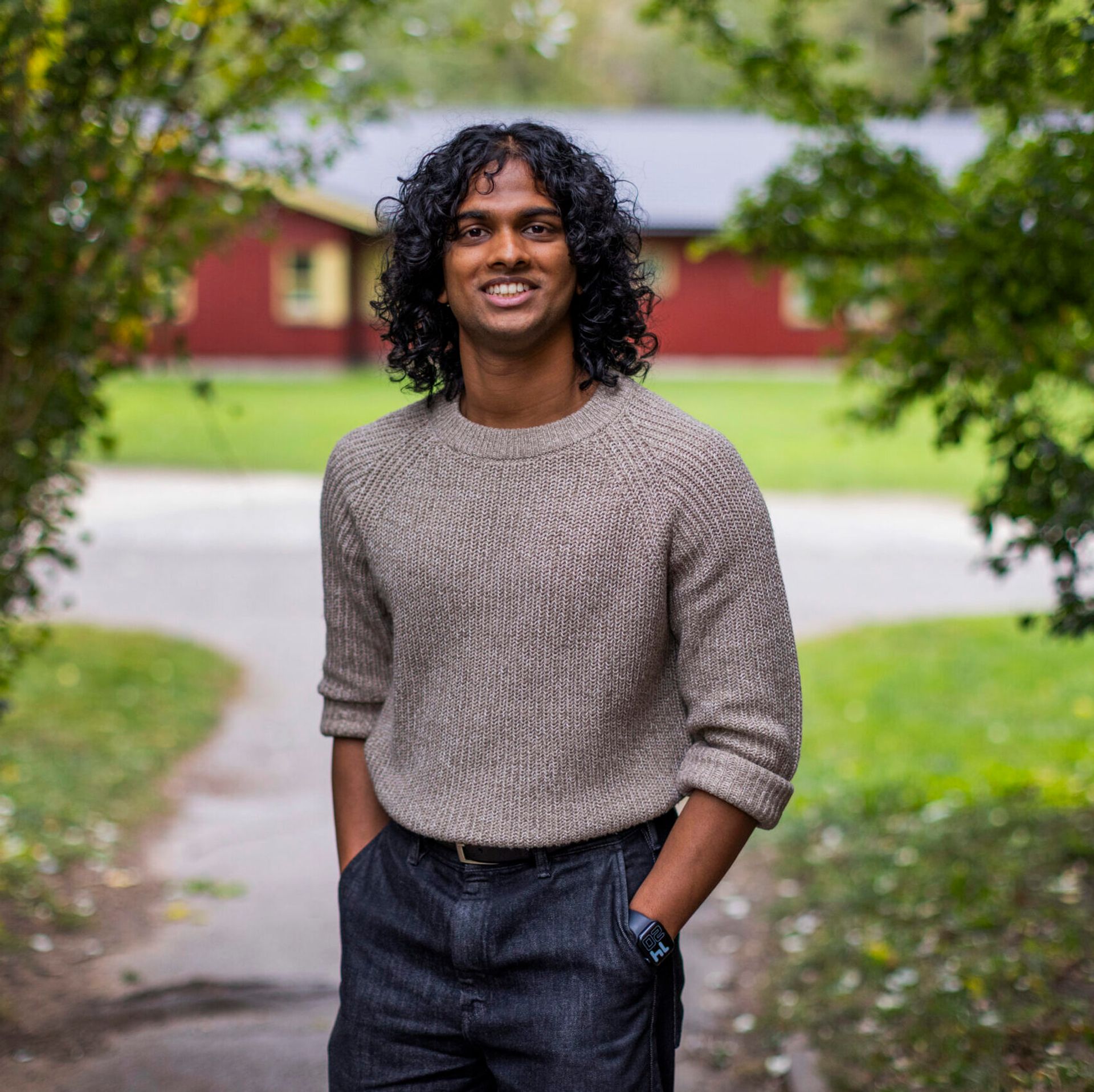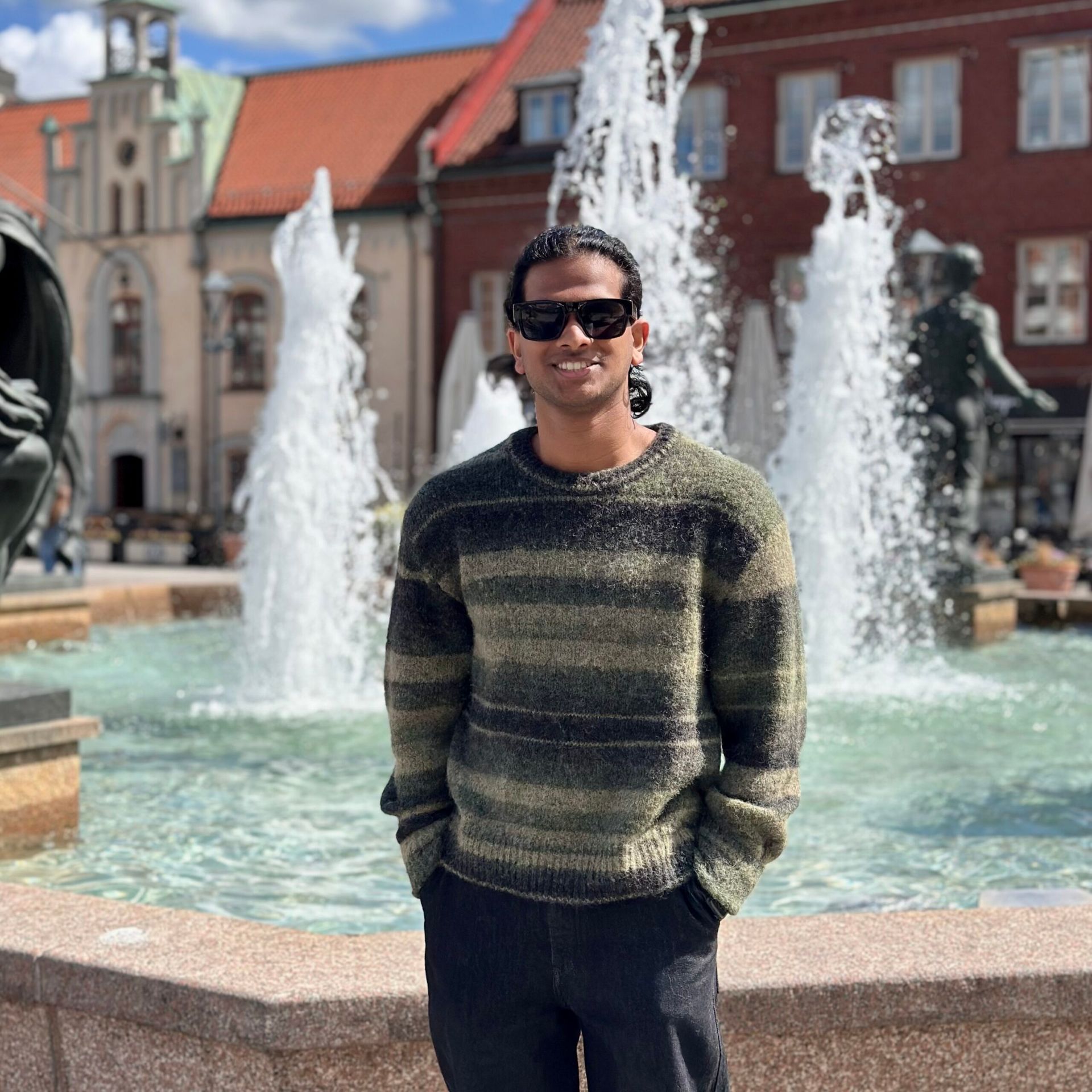
Written by Annamaria
24 Jun 2025
As someone from the EU, my experience of moving to Sweden has been quite different from that of students coming from outside Europe. That’s why I wanted to share the story of Ravi, a tuition-fee paying student from Sri Lanka, who moved to Sweden to study a bachelor’s in Bioinformatics at the University of Skövde. In this blog post, I talk to Ravi about everything from applying for a residence permit and finding accommodation, to settling into Swedish life and making new friends. If you’re a non-EU student thinking about moving to Sweden, his experience might help you understand what to expect.
Why Sweden?
I always wanted to come to Scandinavia because the countries are known for high-quality education, but I didn’t actually consider it for my studies until after I applied. Sweden was also not my first option because I came across it later, and I didn’t know much about it. But it was one of the few countries in Europe that offered a bachelor’s in bioinformatics in English. I applied to several other countries, including the UK, New Zealand, and the US. Once I got accepted, I compared these options. That’s when I realised that tuition fees in Sweden were much lower for my programme than in the other countries. After researching more about the country, I realised it’s the best option for me. It is known to be a very open, progressive society with beautiful nature.

How was the application process for you?
University admission
It was very easy because you apply for all the programmes and universities on the same website, www.universityadmissions.se. Compared to the US, where it was always a different application for every university, applying to Sweden was really easy. The universities in Sweden also did not require an essay for my programme, which was great. You only need proof of language proficiency and to meet the specific subject requirements. It was very straightforward. Probably the most straightforward application process I’ve ever been through.
Residence permit
For the residence permit application, I needed to provide a bank statement showing that I can financially support myself for the period of my studies (minimum 10 584 SEK/month) and an admission decision from the university. That was a bit time-consuming. I also had to fly to India to give the fingerprints and take a picture for the residence permit card since there is no Swedish embassy in Sri Lanka. It took about two months to receive it.

The migration agency gives the permit for 1 year or 2 years, and then you need to extend it every year. I think it’s much better, if you can, to show the funding for two years of studies, so you don’t have to go through that process every year. But there is always the option to show that you have enough funding for one year and extend the permit later.
Note: Before applying for a residence permit, you need to pay the tuition fees.
What were the biggest challenges you faced?
I feel like I didn’t face any major challenges since I tried to stay “on top of things” and make sure to have all my documentation ready on time to meet all requirements. It was important for me to also apply for the personal identity number early to get the Swedish ID. I even got lucky at the bank because they were willing to create a bank account for me quite fast. So I think everything went okay. Learn more about how Ravi stayed “on top of things” moving to Sweden.
Was it hard to find accommodation in Sweden?
Surprisingly, in Skövde, I had no housing guarantee. I think it was because of exchange students who were offered a priority. So I had to queue for an accommodation at Skövde Bostäder. But luckily, it didn’t take long to get an apartment since Skövde is a small city. I also decided to live with a roommate to share the costs. I found him through a WhatsApp group for Sri Lankan students moving to Sweden. Even though we had never met before, we connected over the shared process of applying for a residence permit, which included traveling to the Swedish Embassy in India. Later, we decided to find an apartment together.
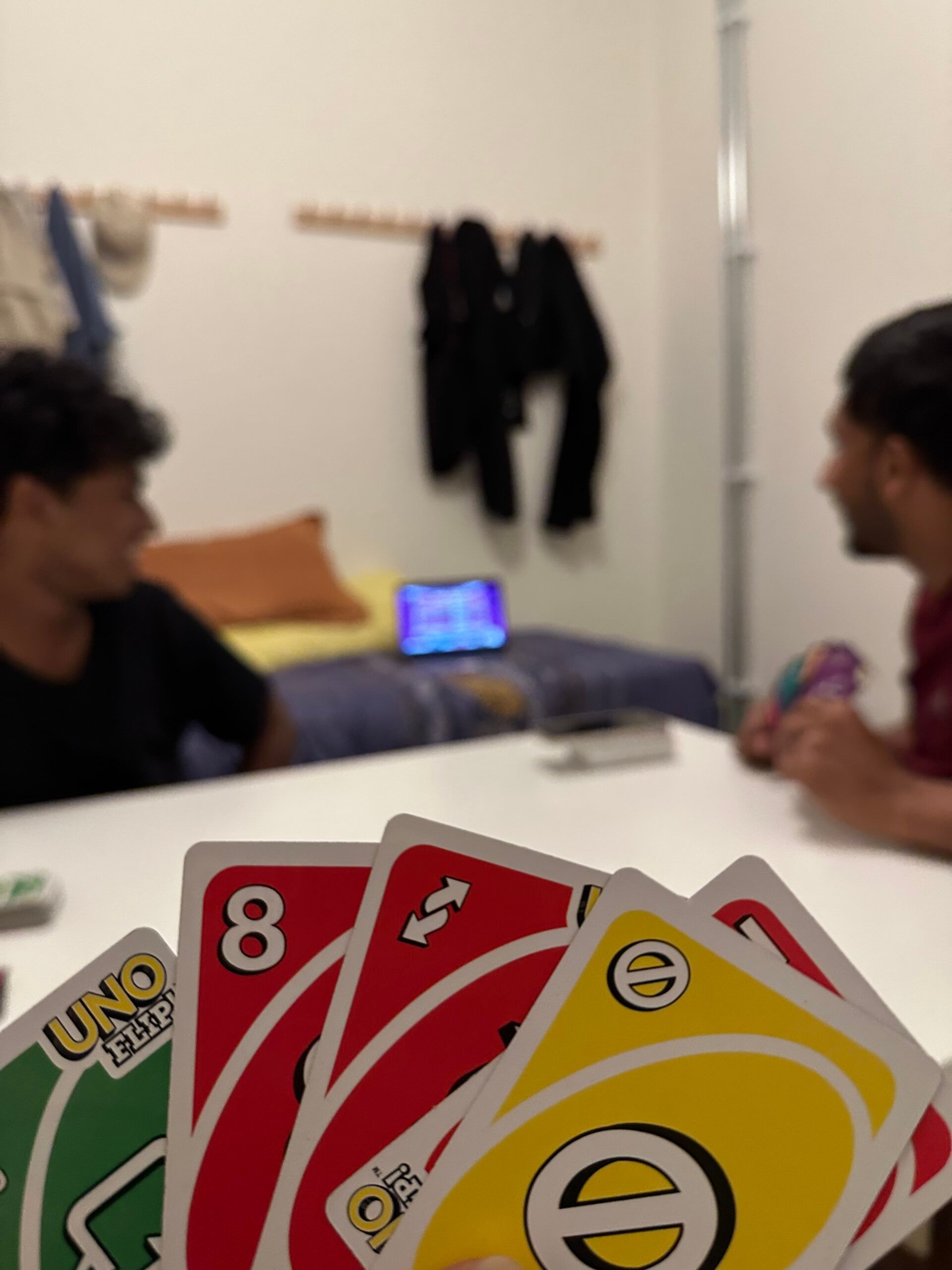
Living with a roommate has been one of the most rewarding parts of my study abroad experience. It’s brought companionship, support, and financial relief, especially in a new country. From my experience, I’ve learned that open communication, respecting boundaries, and maintaining independence are key to making a shared living situation work. Roommate life may not be for everyone, but it certainly worked out for me. Read more in my blog post about roommate life in Sweden.
How do you manage your living costs?
I try to stay on a budget and ideally cook at home. There are microwaves and fridges all around the campus, so you can bring your lunch to the university. I think if one is careful with their spending, it’s possible to live in Sweden on a budget, especially in a smaller city.
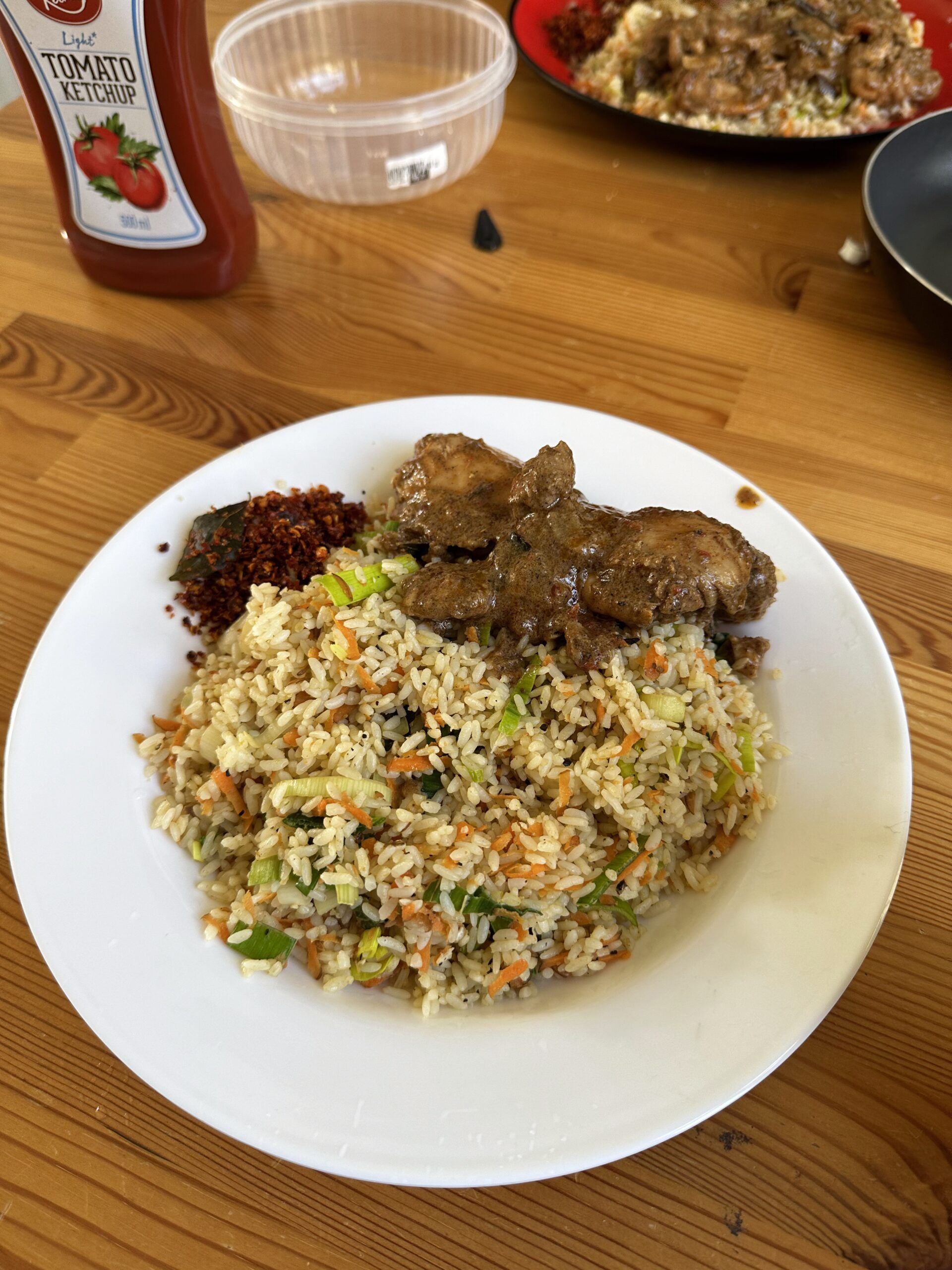
How would you describe the student life?
I think the student life at the University of Skövde is nice. I made a lot of friends during the Welcome Week, which was full of activities. They even made tours around the city, which was very helpful at the beginning.

I try to join in activities as much as I can. Say yes to the opportunities. Joining the student union, attending the “sittnings” (student parties), and board games organised by the university or the Swedish church allowed me to make new friends, even with Swedish people, who are known to be a bit more reserved.

I am also part of the Vitae board, which represents students from the Health Sciences and Biosciences programmes at the university. Its primary role is to act as the liaison between the students and both university staff and the Student Union leadership. We gather feedback, raise academic or study environment concerns, and organise a lot of social activities for our members.
What were the biggest culture shocks?
I think I was surprised by how much I enjoy living in Sweden as an introverted person. As the people here are somewhat reserved, I thought that they were rude at first. That maybe they were judging me because I am a foreigner, but with time, I understood that Swedish people simply value their and others’ privacy. I have grown to like it over time. If you’re introverted or appreciate privacy too, you’ll thrive in Sweden’s culture of respect and space. It’s a place where you can be fully yourself, without pressure to constantly socialise.
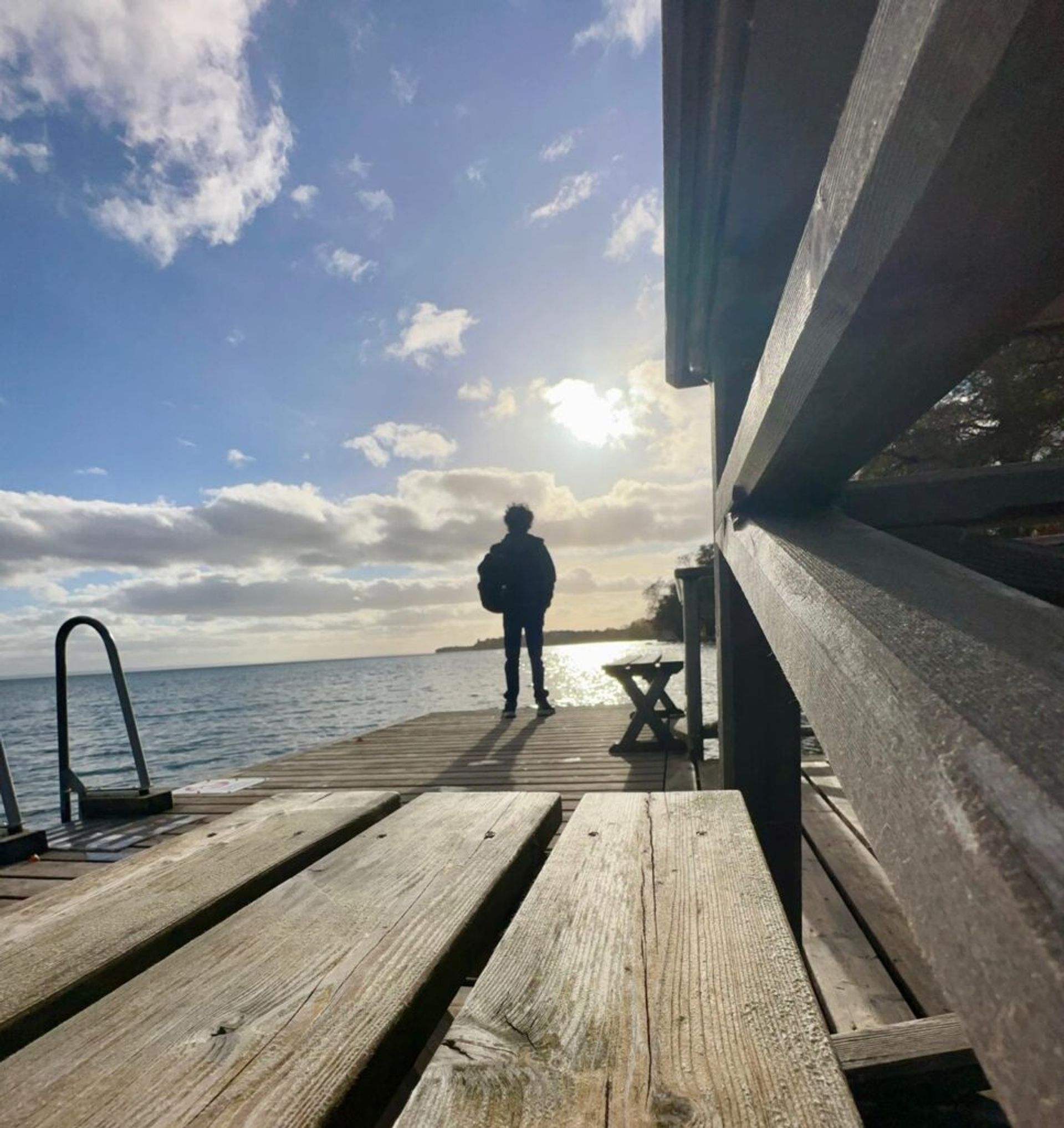
Any final advice?
Join your student union or local student events early on. Whether it’s hikes, game nights, or traditional university ceremonies like the Ovve initiation, these activities can help you build a community and not feel so homesick. Homesickness is a real part of moving to Sweden, but so is the joy of building something new and exciting!




